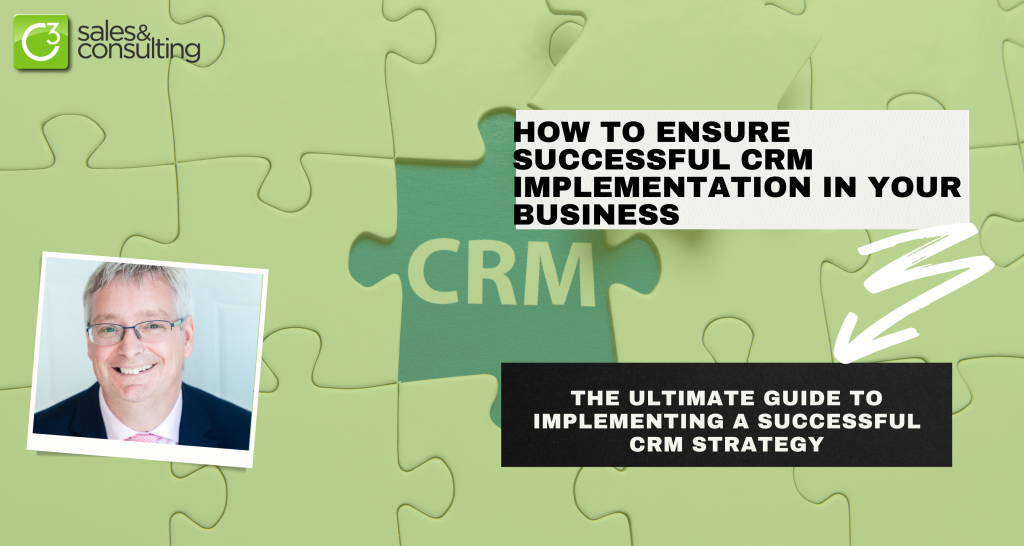A CRM system is an essential tool for any business that aims to optimise its customer relationship management. The system helps businesses organise their customer data, track customer interactions, and provide insights into customer behaviour. However, the success of a CRM system depends on its proper implementation. In this blog post, we will discuss how to ensure successful CRM implementation in your business.
- Identify Your Business Needs
Before implementing a CRM system, you must first identify your business needs. Determine the goals you want to achieve with the system, the problems you want to solve, and the processes you want to automate. Identifying your business needs will help you choose a CRM system that fits your specific requirements.
2. Choose the Right CRM System
Once you have identified your business needs, it’s time to choose the right CRM system. Look for a system that matches your requirements and has the necessary features to support your business processes. Evaluate the system’s scalability, security, and ease of use. Additionally, consider the system’s integration capabilities with other business tools and applications.
3. Involve Your Team
The success of a CRM system depends on the buy-in and adoption of your team members. Involve your team in the CRM implementation process from the beginning. Get their feedback, address their concerns, and provide them with the necessary training to use the system. Encourage them to provide feedback on the system’s functionality and usability, and incorporate their feedback into the system’s design.
4. Data Migration and Cleanup
Before implementing a CRM system, you must ensure that your customer data is accurate and up-to-date. Conduct a data audit to identify duplicate, incomplete, or outdated records. Migrate only relevant data into the new system and ensure that the data is properly mapped. Conduct regular data cleanup to ensure that your customer data remains accurate and up-to-date.
5. Test and Refine
Before going live with the CRM system, conduct extensive testing to ensure that the system functions properly. Test the system’s features, integration with other applications, and data accuracy. Use test data to ensure that the system is secure and that user access is properly configured. Refine the system based on the test results and feedback from your team.
6. Continuous Improvement
Successful CRM implementation is an ongoing process. Continuously monitor the system’s performance, conduct regular data audits, and provide ongoing training to your team. Use the system’s reporting capabilities to gain insights into customer behaviour and identify areas for improvement. Incorporate feedback from your team and customers into the system’s design.
At C3 Sales, we have extensive experience in CRM implementation. We can help you identify your business needs, choose the right CRM system, involve your team, and ensure successful implementation. Contact us today to learn more about our CRM implementation services and how we can help your business achieve its goals.




